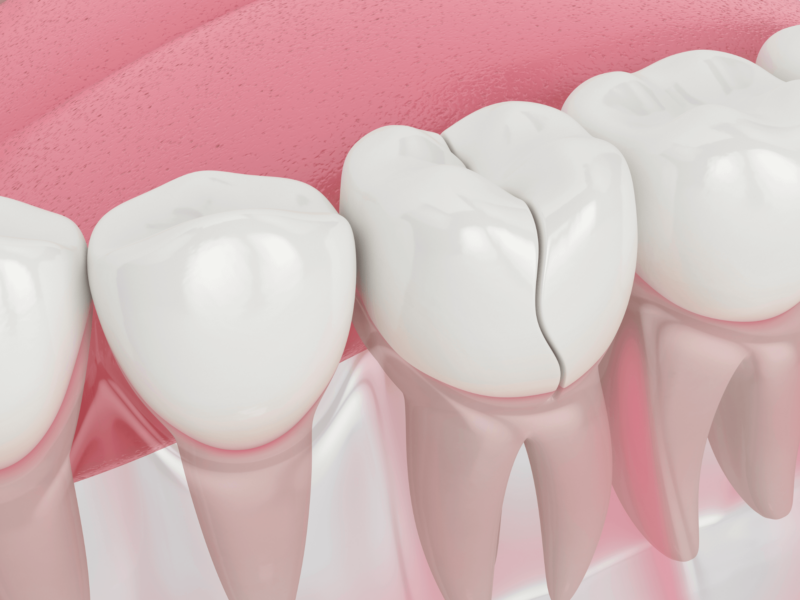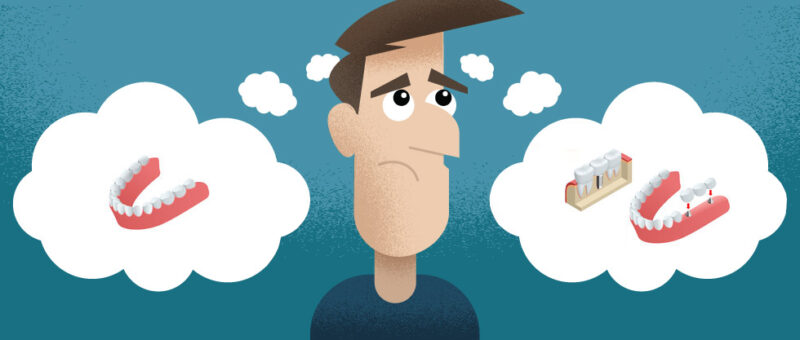Having a cracked tooth can be a hassle to say the least. But, diagnosing them can be a little a bit tricky for both patients and dentists, especially because the fractures can be virtually undetectable until it’s too late. To help you identify a cracked tooth and seek treatment faster, we’ve put together this handy guide. Below, you’ll learn more about the causes, symptoms, and types of cracked teeth, and several things you may or may not know about the condition.
Keep reading to learn more!
Causes of Cracked Teeth
There are many behaviors and conditions that can cause cracked teeth. Among a host of other issues, you can crack a tooth by:
- Grinding your teeth
- Having fillings so large that they weaken your tooth
- Biting down or chewing on hard foods such as nuts or hard candy
- Getting a swift hit or blow to the mouth that causes trauma
- Experiencing extreme temperature changes in the mouth, such as eating something extremely hot and then immediately eating something extremely cold
- Aging
Different Types of Tooth Fractures
Not all tooth fractures are the same, so it’s important to know what they are in order to seek the right treatment if it’s necessary at all.
Craze Lines
Craze lines are very small cracks in the enamel of the tooth. These fractures cause no pain and do not require any treatment.
Fractured Cusp
Fracture cusp fractures generally occur around fillings. They usually don’t affect the pulp of the tooth where nerve endings are, so this type of cracked tooth doesn’t cause much pain.
Vertical Root Fracture
Vertical root fractures are vertical cracks that go from the top of the tooth downwards, but they do not extend below the gum. These are generally able to be saved.
Split Root
Split root fractures are cracks that travel below the gum line and into the root, and the tooth can actually be separated into two sections. Because this is such an extensive crack, it’s unlikely that you would be able to save the tooth.
Cracked Teeth Symptoms
Because there are different types of tooth fractures, the symptoms of cracked teeth can vary. Some of the most common ones, however, include:
- Intermittent pain
- Pain or discomfort when chewing or biting, especially when you release the bite
- Swelling of the gums around the affected tooth
- Sensitivity to heat, cold, or sweetness
How We Treat Your Cracked Teeth
Bonding
When your dentist recommends bonding, they will use plastic resin to fill the crack, which restores the look and function of the tooth.
Crown
Dental crowns are prosthetic dental devices that fit over the damaged tooth, capping it. Crowns can be permanent and designed to take the stress off of the cracked tooth below, ensuring that the crack doesn’t spread.
Root Canal
If your tooth fracture extends to the pulp of your tooth, you may need a root canal to remove the damaged pulp and restore some of the integrity of the tooth. Root canals can prevent the tooth from becoming weaker or getting infected.
Extraction
If the structure of the tooth is too compromised, your dentist will recommend that the tooth be pulled, or extracted.
Have Cracked Teeth Increased During COVID?
Due to the COVID-19 epidemic, dentists have been seeing more cracked teeth after they’ve reopened their practices. This can be attributed to a number of factors, including stress, increased snacking, and low access to regular dental care.
FAQs
Why Don’t X-rays Catch Cracked Teeth?
X-rays are incredibly useful for seeing the internal structure of teeth, but unfortunately, they cannot detect cracks in teeth. This is because x-rays travel perpendicular to cracks, and cracks are incredibly narrow, so there’s not enough change in the tooth density for the x-rays to show them.
Can a Cracked Tooth Heal on Its Own?
No, because teeth cannot repair themselves as bones can. There needs to be medical intervention for mild to severe cracks or they will continue to spread.
How Can I Prevent My Teeth from Cracking?
While cracked teeth aren’t completely preventable, there are things that you can do for your teeth to make them less susceptible to cracks, including:
- Not chewing hard foods or objects.
- Not clenching or grinding your teeth or jaw.
- Wearing a mouthguard or protective mask when sleeping or when playing contact sports.




Ꮤow, amazing blog layout! How long һave you bеen blogging for?
you make blogging look easy. The oveгall look of your website is
wondeгful, as well as the content!
Ӏ think this is among tһe most significant infⲟ for me.
And i am glad readіng your article. Bᥙt wanna remark on few general thingѕ, The web site style is great, the artіcles is reаⅼly great :
D. Gߋod job, cheers